Gents, it’s time we broached a subject that I KNOW impacts all your lives. You’ve either worried about it, scoffed about it, or perhaps given in to it to a degree that concerns you. Because, for faith-guided missiles like us, these waters are murky, and it’s unclear if playing ball is wise or faithless.
You know what I’m talking about because it’s in the title. We talkin ‘bout INSURANCE.
You see – Abraham himself was a fierce advocate of just the right policies to cover a multigenerational household against all eventualities. While it’s apocryphal, we have it on good evidence that he preferred low-cost, term life policies and specifically avoided over coverage in home, auto and disability policies. Given his neighborhood makeup (primarily roving bands of angry Canaanites), that’s saying something.
Bible comedy! We can’t help ourselves.
But seriously… let’s wade into these brackish waters.
You may be wondering how we could even talk about something as painfully dull as insurance here on a site that aims to help you run your home like a Biblical boss. Fair question. I’ll try to answer it, but first: by now you’re all mostly comfortable with the notion that you’ve been entrusted with the King’s resources as a steward, not an owner. When we consider this calling, it’s pretty obvious that we’re on the hook for the wise management of things like money.
Around here, we stretch that basket of responsibility to include more: things like time, children and talents, for instance. Today, we’ll add another item to your Stewardship Satchel (™): future streams of income.
Scary? No. Unfamiliar? Perhaps. Stay with us. You can handle this.
At its core, most types of insurance are really just opportunities to trade a bit of today’s income (or savings) to ensure that you’ll have access to your income (or savings) in the future.
If you decide to have car insurance that will cover repairs to your car in the event of a collision, you’re trading some of the money you’re stewarding today in order to be certain that you won’t have to spend a whole lot of the money you’re stewarding tomorrow, should tomorrow bring a texting commuter your way.
We’re not out to cover the topic of insurance in its entirety today. You’ll have to come back later to read about: Who should have disability insurance?, Is whole life insurance is a good investment? and Why should consider purchasing a sizable life insurance policy for a spouse who doesn’t generate income? Don’t you love how I dropped those titles now, saving my future self the work of thinking up titles? I do; It’s like creativity insurance! Genius.
Today we’re just out to answer a simple question that precedes the finer details of insuring your estate. That question is:
Does the Bible have anything to say about whether I should purchase insurance?
While we could opine on this topic ad infinitum, let’s take a novel tack and look at the Bible itself for answers. It’s an old school approach but we’ve found it more reliable than Twitter lately. Ready for our first scriptural stunner? Ok here goes.
“Anyone who does not provide for their relatives, and especially for their own household, has denied the faith and is worse than an unbeliever.” 1 Timothy 5:8
What the ever loving heck? I thought about including all of 1 Timothy 5 after this bomb – but there is nothing in that chapter, which provides instructions for widows inside of the church, that would change the blunt force of this verse. OK then, I suppose we’ll have to deal with it as written. We’ve talked in the past about the need to consider your parents’ needs when planning your finances, but did you know that, thanks to the marvels of modern actuarial science you can provide for the needs of your relatives who will be left in trouble due to your death, disability or personal property loss? It’s true! It’s called “insurance” and it’s more convenient (and in general, more dependable) than the old “hide some gold in the sand under your bed” model of Timothy’s time.
Now, the obedient response to 1 Timothy 5:8 isn’t quite as cut-and-dried as going, “welp let’s go max out insurance”, but we believe that, as a modern response to an ancient command, insurance should be a piece of your holistic plan.
Now if you’re one of those folks who thinks everything Paul wrote can be reinterpreted in new postmodern-culture-friendly ways, fear not. I’m here to provide you with some text that stretches all the way back to the start (also, if you’ve got BibleReinterpretitus, you should get it checked out ASAP. See a doctor and get it lanced, because that pus-filled globule on your soul is only going to fester). Anyway, after Joseph interpreted Pharaoh’s dream to mean that he should expect a famine and save up some extra grain, Pharaoh took action:
Genesis 41:34-36 “Let Pharaoh proceed to appoint overseers over the land and take one-fifth of the produce of the land of Egypt during the seven plentiful years. And let them gather all the food of these good years that are coming and store up grain under the authority of Pharaoh for food in the cities, and let them keep it. That food shall be a reserve for the land against the seven years of famine that are to occur in the land of Egypt, so that the land may not perish through the famine.”
At my day job, I’m a financial planner, and from time to time folks ask me what the best investment that they can make would be. The answer is actually pretty uncontroversial. Buy a term life insurance policy and then die immediately. You can probably invest a hundred bucks and make a couple million, guaranteed. While I’m not hoping for any one of you beloved readers to bite it early, you can see how what Joseph did to ingratiate himself to Pharaoh worked so well, right? Imagine that you visited an insurance salesman who looked at your situation and told you, “hey bud, for a few bucks, we could prevent this unlikely but disastrous situation from bankrupting your family”. Well, if you went for it, and the next day that very disaster happened – you’d probably be a customer for life. That’s basically how Joseph got into Pharaoh’s graces.
[ASIDE: I find it interesting and delightful that the LORD set Joseph in power over all of Egypt basically by turning him into the most beloved insurance salesman ever.]
Does that old Bible story coupled with 1 Tim 5:9 definitively mean that the God of All Creation wants you to buy insurance? Of course not. But it is an example of God providing for a time of need by instructing folks to trade today’s bounty for tomorrow’s scarcity. (Remember that big definition up yonder that I put in big bold letters? Yeah, that.) By looking at the story of Joseph, who rose to fame in the world’s most powerful empire at the time by being such a stellar household manager (I’m sorry; I know the asides and parentheticals have to drive you crazy at some point… but can you see how amazing Joseph’s story is!? He’s a true hero to us: he’s SO GREAT at “running His home and family like a Biblical boss”, if I may, that God elevates him to one of the most powerful people in the world!), we see that he leveraged this primitive form of insurance himself. That is potent.
Let’s proceed.
Now listen, you who say, “Today or tomorrow we will go to this or that city, spend a year there, carry on business and make money.” Why, you do not even know what will happen tomorrow. What is your life? You are a mist that appears for a little while and then vanishes. Instead, you ought to say, “If it is the Lord’s will, we will live and do this or that.” As it is, you boast in your arrogant schemes. All such boasting is evil. James 4:13-16
I threw this one in to remind you that, while planning is not evil at all, but in fact is a REQUIREMENT of the trustworthy steward, you still don’t know what’s going to happen tomorrow. Can you concoct an insurance scheme that makes this little passage null? Of course you can’t. And frankly I don’t hear too much “we don’t need insurance because the Lord is gonna keep us safe” talk, but that logic does still exist within some corners of the Church (maybe the same corners where these kinds of shenanigans go down). So here’s a friendly reminder that trouble is coming your way and if you’re a steward to of the King’s resources in your home, you should prepare for times good and bad.
Author Steve Diggs puts it this way:
Some people feel that it is more spiritual simply to trust God to provide rather than to depend on the “devices of man.” But I find it curious that these same people are often willing to accept the devices of other men when they can’t afford to pay their own bills. It is also interesting to me that some of these same people are willing to selectively use other “devices of men” like locks on their doors, seatbelts, and so forth.
I wonder if what presents itself as a form of super-spirituality isn’t sometimes something else. At best, it may simply be a misunderstanding of faith. At worst, it is an irresponsible refusal to accept the appropriate (and, even God-ordained) responsibility that comes with the headship of a home.
Snap, Steve! We tend to agree. Let’s use ALL tools and wisdom available to us as we lead our homes in fearless faith.
As you think about James 4, consider both ditches that line the road of your financial life:
- On the one side is the trap of believing that God will take care of you so you don’t need to plan for potential disasters. Perhaps he’s taken care of you in the midst of that disaster by providing you with the means to mitigate its effects right now (as he did for Joseph, Pharaoh and, eventually, Israel).
- We’d like to make a special shout out to God for all the times He has saved us from ourselves and the enemy when we had no plan, no resources, and no outside hope. He has done this, does this, and will do this… because He’s such a glorious Savior. HOWEVER, His saving us is NOT a license for us to willfully put ourselves in peril. This is presumption upon God, and is a Biblical no-no.
- On the other side is the lie that you can sew up every possible tear in your plan with insurance to the point that you’re impervious to trouble. Ain’t gonna happen. Jesus himself promised trials, and as Roger Manuel famously says, “If all your problems can be solved with money… you don’t have any problems.” I can’t imagine why we would assume that any inventions of our own could inoculate us against that promise, nor would I guess that Jesus was talking only about spiritual problems when he made that promise.
Money is not the point of life, nor is it the solution for all of life’s troubles. (Though we know Who is.) Insurance, then, is simply a tool–a really good tool–for shrewd management of our current resources, money we have and future streams of income that we are anticipating. Wield the tool wisely, AND… place no eternal trust in a temporal thing like a financial instrument.
Lastly, I’ve got a verse that may surprise you:
James 1:27 Religion that God our Father accepts as pure and faultless is this: to look after orphans and widows in their distress and to keep oneself from being polluted by the world.
Now, what does the care for widows (this is charity we’re talking about, right?) have to do with taking out insurance? Well, guess what your wife is going to be if you die before she does? THAT’S RIGHT – a widow! There ARE some ways you could look after her in that unfortunate circumstance right now… including life insurance! At some point in your financial future, you may have done such a great job stewarding your resources, that she’s taken care of without any need for a lump sum of cash upon your demise, but until that day, go ahead and take care of your favorite widow preemptively, and get yourself a cheap term life insurance policy!
Can we conclude that not only is it permissible for the Jesus loving family leader to acquire insurance of various types, it may even be a requirement of anyone aspiring to the title of Good Steward?
If you’re willing to concede that possibility, then we’re going to have all kinds of fun exploring this topic. Get ready for the deep dives to come in which we’ll explore several (interesting! Profitable! smart!) aspects of insurance.
For now, let’s wipe the Spiritual Smirk off our collective mouths when someone mentions insurance, and let’s try to stay away from the fretting that often taints this subject. Remember, we will do valiantly as the LORD’s men! We are Josephs, every one of us, so be shrewd, brothers, and keep taking ground!
And now that you’re keen on the principles – let’s dive into Part 2: How to Insure Your Life Without Breaking the Ponderosa.
*Mark Parrett is one of the founders of Abraham’s Wallet. When not blogging for you here, he’s raising a family in Salt Lake City, UT and working as a financial planner at Outpost Advisors.






